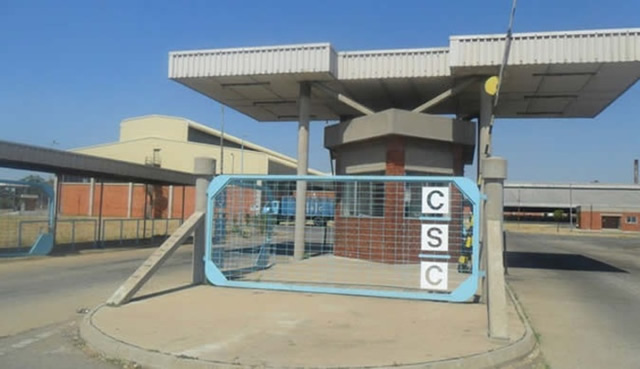Editorial Comment: CSC re-capitalisation crucial for its revival

 IN his monetary policy statement last week, Reserve Bank of Zimbabwe Governor Dr John Mangudya singled out the revival of the Cold Storage Company as one of the critical planks upon which the overall resuscitation of the country’s economy hinges.
IN his monetary policy statement last week, Reserve Bank of Zimbabwe Governor Dr John Mangudya singled out the revival of the Cold Storage Company as one of the critical planks upon which the overall resuscitation of the country’s economy hinges.
Over the years, the company has seen its fortunes waning to the extent that private abattoirs have taken over most of its business. As it stands, the CSC is slaughtering less than 2,000 cattle a month down from pre-2000 levels of more than 50,000. At its peak, the CSC used to buy cattle from farmers and offered highly competitive prices. It stopped doing so about a decade ago due to lack of finance.
Estimates last year indicated that the country’s meat processor and distributor was losing close to $250,000 per month in potential revenue at its headquarters in Bulawayo since most of its business had now been taken by private abattoirs. Statistics from the Zimbabwe Abattoirs Association show that the country slaughters between 18,000 and 22,000 cattle a month with abattoirs in Matabeleland accounting for 6,000 to 7,000 beasts.
The myriad of challenges at CSC stem from its underutilisation of capacity (at both factories and ranches), undercapitalisation, disease outbreaks (mainly foot and mouth), decline in commercial cattle herd, high staff turnover and an ageing fleet. It has over the years managed to stay afloat through service slaughter, rentals from tenants using its industrial complex in Bulawayo, leasing its feedlots and ranches in various parts of the country. Its main challenge is to attract an investor for each of its five abattoirs in Bulawayo (the biggest), Masvingo, Chinhoyi, Marondera and Kadoma. These facilities are world class and have a slaughter capacity of up to 600,000 head of cattle per year but for now only Bulawayo and Chinhoyi have limited and sporadic slaughters.
CSC is also leasing all its seven ranches in the Charter Estates, Darwendale, Chivumburu, Mushandike, Dubane, Mapaneni, Winterblock and Wilsgrove. Government needs to prioritise the revival of the company and we are glad moves are afoot in that regard. As reported elsewhere on these pages yesterday, the Agriculture Marketing Authority (AMA) is planning to float bills to raise $5 million to recapitalise the CSC.
AMA chief executive officer Rockie Mutenha told a Parliamentary Portfolio Committee on Lands and Agriculture that money raised through the bills would assist CSC to stock livestock for slaughter at its abattoirs.
“We also are planning to float bills to raise $5 million to assist the Cold Storage Company for slaughter stock. This will increase their capacity utilisation at the company which is operating at the moment at 10- 15 percent,” he said.
Mutenha said AMA hopes to capacitate CSC so that it can compete with private abattoirs.
“The thrust on CSC is that over the years we have seen the proliferation of private abattoirs coming to compete with the CSC and since the dollarisation of the economy we have seen that the CSC like GMB has been facing challenges in terms of raising funding for them to be able to buy animals especially for slaughter and we will also see utilisation of the abattoirs which are under the CSC.”
He said CSC would use proceeds from their abattoirs to repay the $5 million bills. “We would like to see CSC going out into the various farming communities to purchase animals, perhaps temporarily feed them or hold them under the various ranches, which they have. When they are fed they are then slaughtered and then put onto the market and sold and funds used to repay the bills,” Mutenha said.
We welcome the latest developments and hope that they will go a long way in resuscitating the CSC — one of the strategic parastatals that Government has identified for revival. We are particularly glad that Government has seen it fit to raise funds locally as opposed to seeking a strategic partner or foreign investor as this buttresses its ZimAsset thrust to look within for funding. A revived CSC will not only contribute to the national economy but will also create employment. The national herd will also be boosted by increased activity on the various CSC ranches dotted around the country.











Comments